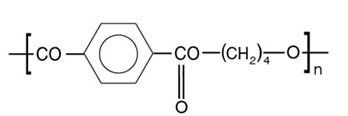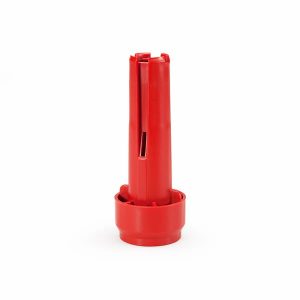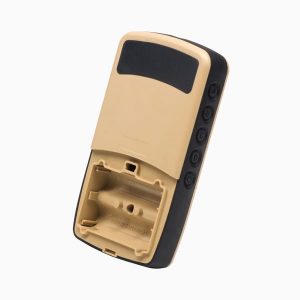
Brand names: Cycolac, Lustran, Hival
What is PBT?
Polybutylene Terephthalate (PBT) is a semi-crystalline thermoplastic that belongs to the polyester family of polymers. It has several different grades that will allow for reinforcement, filled, impact modification, and flame retardancy. It has excellent mechanical and electrical characteristics, it’s stain-resistant, light, and has exceptional short-term mechanical properties. With high dielectric strength PBT protects electrical and electronic components. It is highly resistant and guards against leakage and breakdown in power circuitry.


Benefits
- Stain-resistant
- Lightweight
- Excellent short-term mechanical properties
- Can last short term thermal excursions and long-term heat exposure
- High dielectric strength
- Block UV radiation, excellent heat aging behavior
- Chemical resistance
Drawbacks
- High mold shrinkage
- Poor resistance to hydrolysis (sensitive to hot water)
- Prone to warping
- Unreinforced PBT is notch sensitive
- Low HDT at 60° degree Celsius (140° Fahrenheit)

– Consumer Products
How can I use it?
Industrial
Common applications for the industrial market include electrical, electrical components, windshield wiper covers, mirror housings, cowl vents.
Properties of PBT
The polymer displays excellent mechanical and electrical properties. Review the key properties of this polyester material discussed below.
- It has excellent stain resistance and machining characteristics
- It enables efficient use of material to reduce weight and cost
- It delivers excellent short-term mechanical properties, such as high strength, toughness and stiffness as well as good practical impact
- It provides good creep resistance, dimensional stability and low moisture absorption characteristics
| Elongation at Break | 5-300% |
| Elongation at Yield | 3.5-9% |
| Flexibility (Flexural Modulus) | 2-4 GPa |
| Hardness Rockwell M | 70-90 |
| Hardness Shore D | 90-95 |
| Stiffness (Flexural Modulus) | 2-4 GPa |
| Strength at Break (Tensile) | 40-50 MPa |
| Toughness (Notched Izod Impact at Room Temperature) | 27-999 J/m |
| Toughness at Low Temperature (Notched Izod Impact at Low Temperature) | 27-120 J/m |
| Young’s Modulus | 2-3 GPa |
| Coefficient of Linear Thermal Expansion | 6-10 x 10-5 /°C |
| Shrinkage | 0.5-2.2% |
| Water Absorption 24 hours | 0.1-0.2% |
Source: Omnexus
Start your quote today